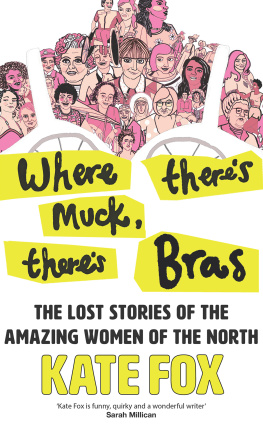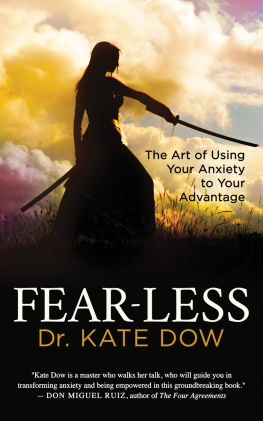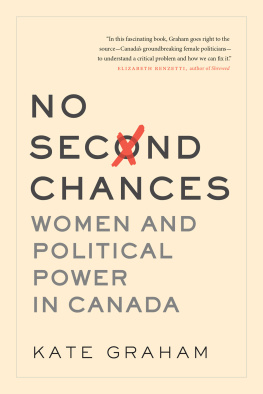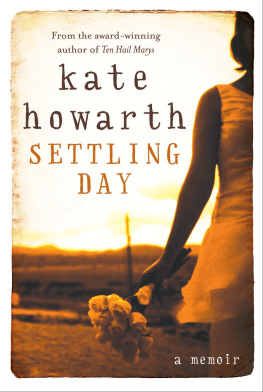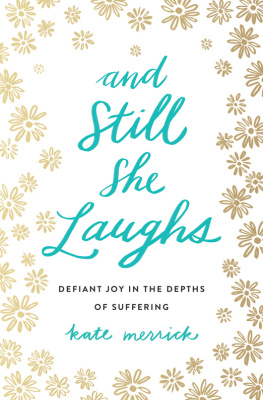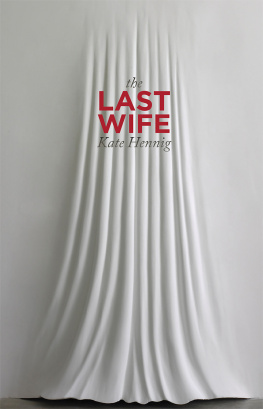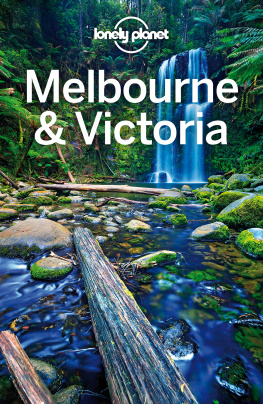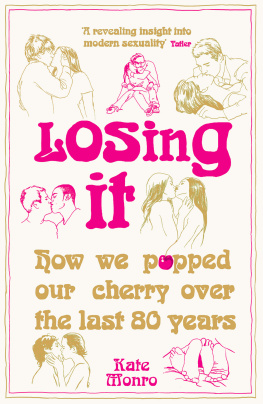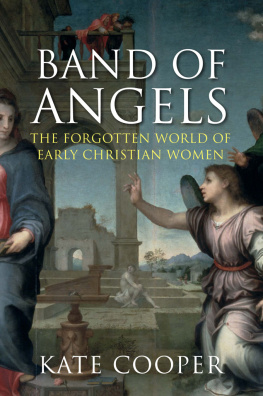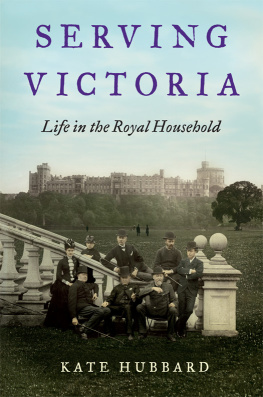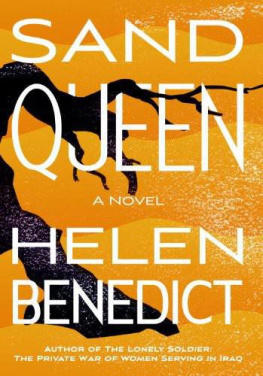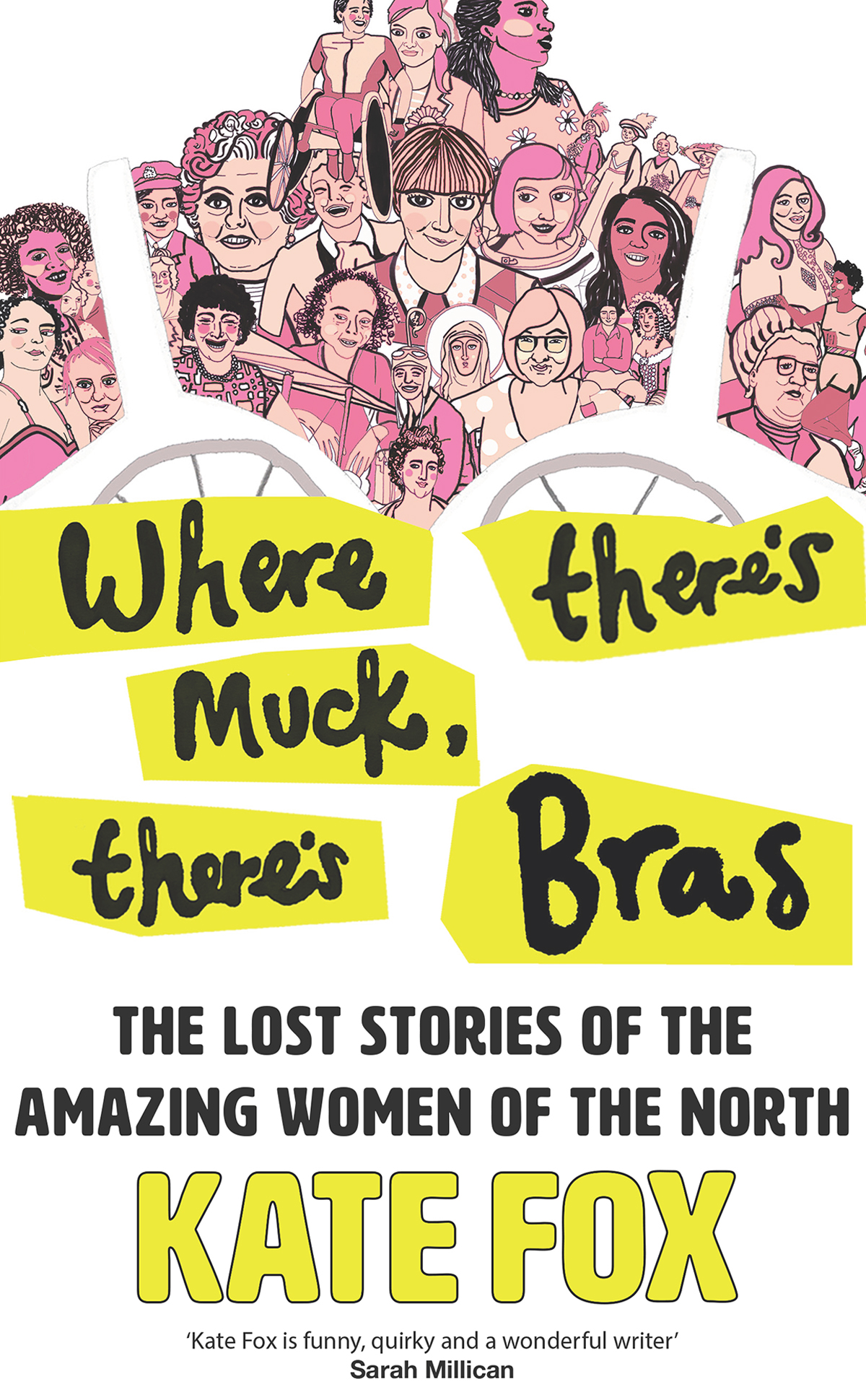Contents
Guide
HarperNorth
Windmill Green,
Mount Street,
Manchester, M2 3NX
A division of
HarperCollinsPublishers
1 London Bridge Street
London SE1 9GF
www.harpercollins.co.uk
First published by HarperNorth in 2022
1 EDITION
Copyright Kate Fox 2022
Cover design Josie Brookes
Kate Fox asserts the moral right to be identified as the author of this work
Extract from End from Sudden Collapses in Public Places, by Julia Darling Estate of Julia Darling 2005
A catalogue record for this book is available from the British Library
All rights reserved under International and Pan-American Copyright Conventions. By payment of the required fees, you have been granted the nonexclusive, non-transferable right to access and read the text of this e-book on screen. No part of this text may be reproduced, transmitted, downloaded, decompiled, reverse engineered, or stored in or introduced into any information storage retrieval system, in any form or by any means, whether electronic or mechanical, now known or hereinafter invented, without the express written permission of HarperCollins e-books.
Find out about HarperCollins and the environment at www.harpercollins.co.uk/green
Source ISBN: 9780008472894
Ebook Edition March 2022 ISBN: 9780008472900
Version 2022-03-01
This ebook contains the following accessibility features which, if supported by your device, can be accessed via your ereader/accessibility settings:
- Change of font size and line height
- Change of background and font colours
- Change of font
- Change justification
- Text to speech
- Page numbers taken from the following print edition: ISBN 9780008472894
To Rosemary, my Stepmum, and all those other extraordinary,
ordinary Northern women whose superpower is love.
Cartimandua was a Northern Queen, more powerful and cannier than Boadicea what made one stay in the memory and the other disappear?
An unsculpted statue cannot crumble an unpainted portrait cannot fade a memory cannot be forgotten if it was never made.
I wondered if it was just the chip on my shoulder. The fat, greasy, chip-shop chip that seagulls love chip on my shoulder that meant I noticed that notable women in all sorts of fields were always being described as not as well known as youd think, underrated or forgotten. The chip on my shoulder that meant when I trained as a radio newsreader, hoping to work for Northern radio stations, I was told I sounded too Northern. Or, the one that weighed me down when I noticed a lot of people who worked in writing and broadcasting couldnt get their head round the fact I lived in the North and worked in writing and broadcasting: Have you travelled down today? theyd ask in shock when they realised I really didnt live in London, as if suddenly realising there actually were roads and railway lines, possibly even aeroplanes, that went beyond the Watford Gap.
Once I realised you really were less likely to be remembered by history, or noticed in the present, if you were Northern or a woman (and the likelihood of not being remembered or noticed increases with every additional marginality you have such as being from an ethnic minority, disabled or LGBTQI+), I felt distinctly miffed about this exclusion. I wanted to make a fuss. But theres a Catch-22. Its not very Northern to make a fuss. In fact, if a certain Russian punk feminist band were from the North, theyd have to be renamed Pussy Kerfuffle. But basically, I didnt know if I should go on about it too much, or who would care. Did it matter that if you asked people to name a Northerner, they would almost certainly name a man first? And second. And third. Probably a man in the great tradition of Northern Curmudgeons that is, men who must not ever betray that they are happy about anything or anybody and who would say, even of an experience transporting them to their greatest height of transcendent beauty and euphoria, It were alreet. Men like Geoffrey Boycott or Noel Gallagher or Michael Parkinson who is so Northern he is even named after a Northern type of ginger cake. (As I toured round the North, I realised that some places call it parkin and some call it ginger cake. At least thats not as divisive as the bread roll. Which might be a bap or a barm cake or a stottie or an oven-bottomed muffin or a bun or a teacake Audiences can get very passionate about this. More passionate than about class and gender regional inequalities, to be honest. Sometimes I lost all hope of us ever overcoming our intra-Northern differences and developing a united identity. Pan Northern is not just a kind of Northern casserole, I wanted to say.)
Then first a ripple, then a wave of activity began around the centenary of women getting the vote, which meant that money was made available to councils around Britain to celebrate women who had contributed to the cause (a fifth of that was awarded to a statue project in London, but no, Im not making a fuss, not me ). Along with the Me Too movement and the campaigns of feminist activists such as Caroline Criado Perez (who successfully campaigned for Jane Austen to be the first woman, apart from the Queen, celebrated on a banknote) and Laura Bates, who pointed out that only 15 per cent of statues in the UK were women, this wave coincided with women in history being taken more seriously and recognized as more likely to have been erased from the records than men.
Then came The Festival of the North, an idea of George Osborne, then chancellor of the exchequer, to showcase the culture of the Northern Powerhouse, a catchy title which is not actually the nightclub in Barnsley it sounds like. Its an initiative to help the Norths economy catch up to that of London and the South East, since the North has massively less government investment in infrastructure like transport, training, and the arts; has big ongoing social problems caused by the death of manufacturing industries like mining and shipbuilding; and has higher ill-health and death rates than London and the South East. (George tended not to talk much about these structural issues, instead placing the emphasis on the need for the North and its businesses to attract national and international investment.)
Before applying to be part of the festival, I amused myself by googling Northern Powerhouse, which uniformly brought up images of either men in suits at long council tables brandishing documents in red folders, or men in hard hats and high-vis jackets pointing at things on building sites, in order to let us know that they personally were building the Northern Powerhouse. I suppose there was at least some diversity of colour because some of the hard hats were blue instead of yellow. But on the whole, it was local and national politicians showing us a North in their image. White, male and middle-aged. So I was chuffed when my proposal for a stand-up show about Northern women who had been forgotten in the past or should be remembered in the future was accepted. Who could have resisted it with a title like Where Theres Muck, Theres Bras which, as you will know, is a pun on the Northern saying about the value of farming land to industry: Where theres muck, theres brass. One of my favourite things has become hearing posh and/or Southern people being unable to pronounce the pun correctly because they say bras and brass in exactly the same way.

